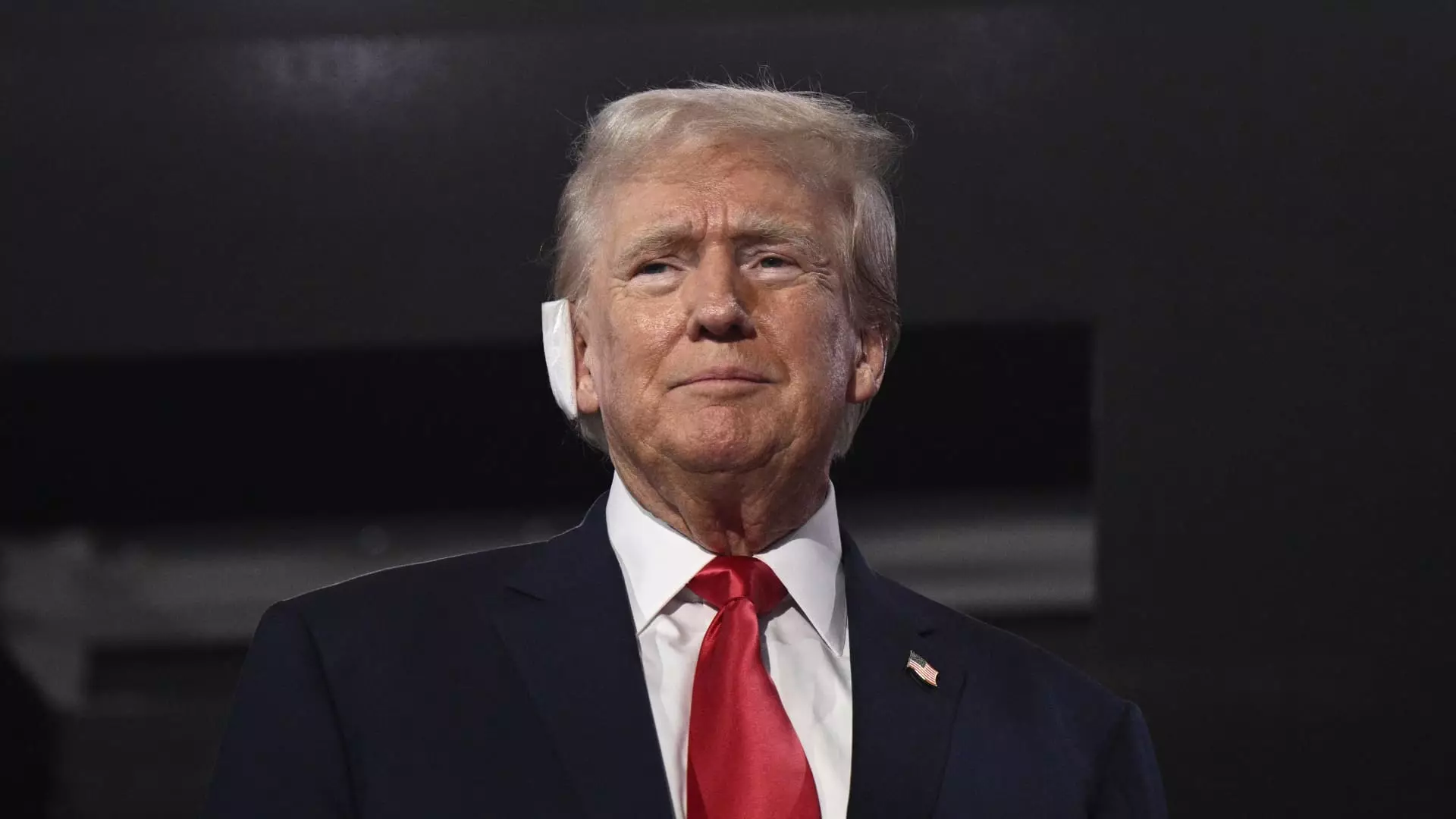As we move toward the upcoming presidential election, the specter of former President Donald Trump’s economic policies looms large over both domestic and global markets. Analysts are increasingly vocal about the potential ramifications of a second Trump administration, particularly when it comes to inflationary pressures that could echo not just within the United States but across the globe.
Trump’s “America-First” economic approach, characterized by high tariffs and tax cuts, exemplifies policies that many experts believe are inherently inflationary. During his first term, these measures were designed to bolster domestic production while curtailing imports. However, such strategies often act as double-edged swords, leading to increased costs for consumers and businesses alike. High tariffs on foreign goods typically cause prices to rise, as imports become more expensive. This situation may push consumers to spend more, thereby heightening demand and, in turn, prompting producers to adjust prices upwards.
Michael Metcalfe, head of macro strategy at State Street Global Markets, noted that the context in which Trump would re-implement these policies is significantly more precarious than it was in 2016. With inflation already perched at elevated levels and consumers’ inflation expectations shifting, the economic landscape is fraught with challenges. Having climbed from historic lows, the readiness of consumers to spend adds another layer to this inflationary cycle.
The implications of Trump’s protectionist policies are not confined to U.S. shores. Economists predict that a second Trump term could unleash a wave of inflationary pressures that ripple through Asia and Europe. Nomura’s Gareth Nicholson indicates that the inflation generated by Trump’s policies will likely adversely affect Asian stock markets. The higher cost of imported goods would not only burden American consumers but could also lead to increased prices for international markets, triggering a cycle of inflation across various economies.
In Europe, financial institutions like Goldman Sachs have weighed in, suggesting that a Trump presidency could further strain international trade relationships, leading to a rise in prices. With inflationary pressures compounded by geopolitical tensions, notably with China, the fabric of global trade may fray, presenting additional hurdles for economies already grappling with their own inflationary challenges.
As both Trump and current President Joe Biden stake their claims for the upcoming election, they’re both signaling intentions to increase tariffs on China amidst rising geopolitical tensions. While a Trump presidency is likely to intensify protectionist measures, economists are divided on the extent to which this will adversely impact inflation. Some foretell that the fiscal expansion strategies proposed by Biden could also lead to inflation, but analysts believe Trump’s hardline positions are more likely to drive inflation higher in the near term.
The divergence in policies from the two candidates denotes an impending economic battleground where the outcomes hinge on consumer sentiment and the federal monetary policy. Analysts argue that Trump’s approach is more inclined to provoke immediate price hikes, thereby complicating the Federal Reserve’s efforts to manage interest rates.
Investor sentiments are currently shifting in response to Trump’s rising prospects in the Republican primary. Recent market rallies reflect optimism about his pro-business stance; however, analysts warn that such optimism could be fleeting given the broader economic implications of his protectionist policies. With early indications showing a favorable reception for Trump, the stock market may experience volatility as investors weigh their options amid a fluctuating economic outlook.
Many market watchers believe that a second Trump presidency could lead to a “reflationary mix,” as discussed by Marc Franklin of Manulife, indicating potential alterations in yield curves and interest rates. The specter of rising inflation expectations could compel the Federal Reserve to take a more hawkish stance, further complicating an already challenging economic climate.
In summation, the prospect of Donald Trump securing a second term raises significant questions about the future of global economics. Analysts warn that his protectionist and inflationary policies, while aimed at domestic revitalization, could spiral into a wider array of challenges overseas. The intersection of geopolitical factors and economic strategies suggests a complex road ahead. As the world observes these developments, the consequences will likely resonate far beyond U.S. soil, presenting an intricate puzzle for politicians, economists, and consumers alike.


Leave a Reply